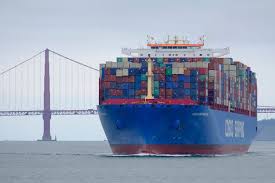|
TradeMoves just celebrated its 10th anniversary (Happy Birthday, TradeMoves!). The past decade has seen efforts by the United States to continue to open markets, implement and pursue new free trade deals to benefit the United States, and encourage US companies to find overseas customers via the National Export Initiative and other export promotion programs. It is timely that TradeMoves’ 10-year anniversary coincides with a change in Administration. As we prepare for the incoming trade policy team to roll out its priorities and initiatives, we thought it was fitting to outline why open markets matter and cross-border trade opportunities should continue to be prioritized and encouraged.
We look forward to the next decade for TradeMoves and helping US companies maximize their supply chains to take advantage of cross-border trade opportunities and minimize the challenges arising from trade barriers that countries put up to limit export growth. Shawn Marie Jarosz [email protected] Check out TradeMoves’ website and read our blog at www.trademoves.net. Find us on LinkedIn. Follow us on Twitter @TradeMoves and @ShawnJarosz 10/2/2019 12:35:21 pm
I wanted to enter the trading business in the future, but I am not knowledgeable regarding this field. It's a great thing that this article elaborated on how erecting tariff barriers in the United States to imports from other countries can encourage export growth. These are great insights; I think it's also a great idea to hire a trade council that may help me increase my exports. Comments are closed.
|
|





